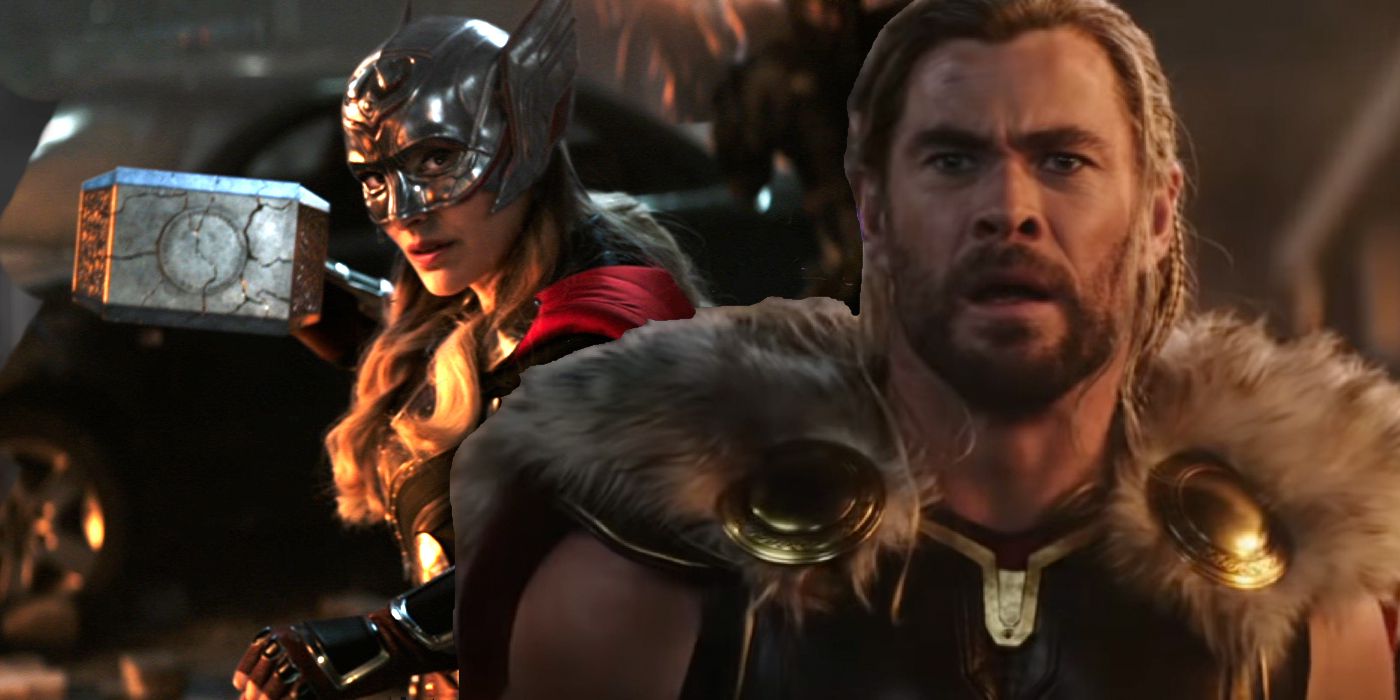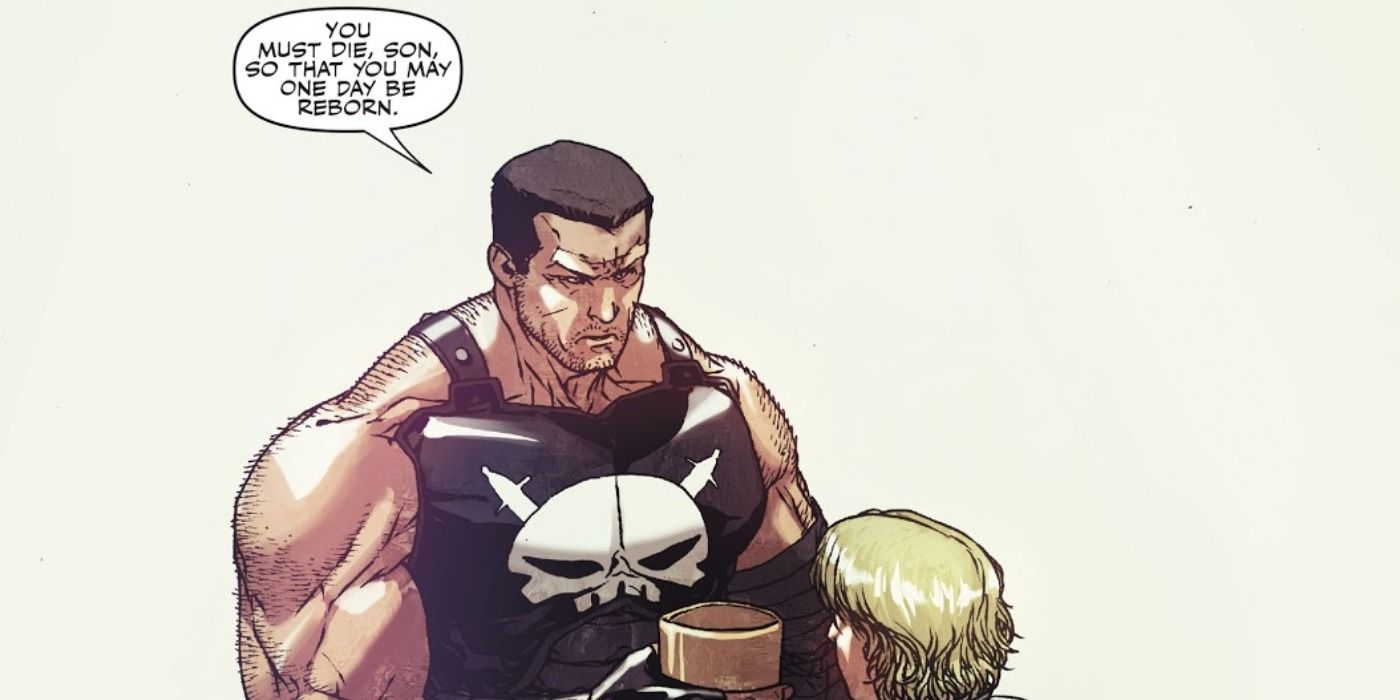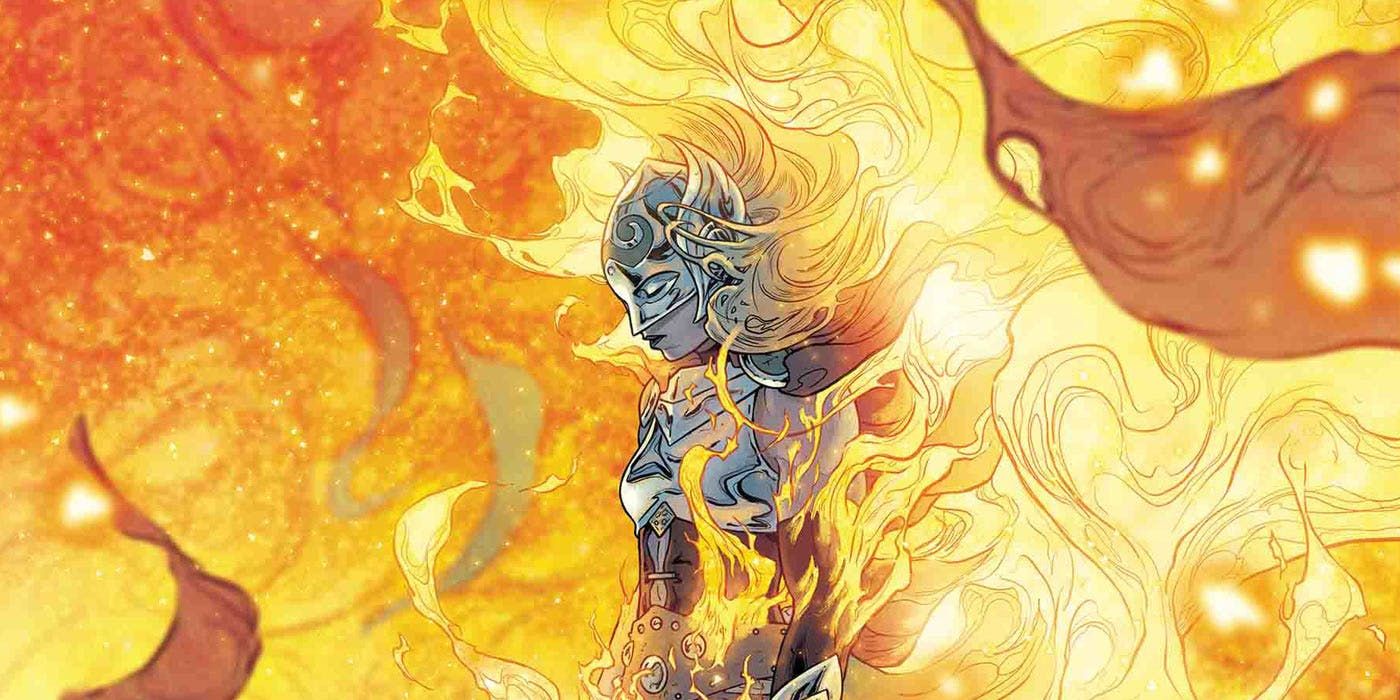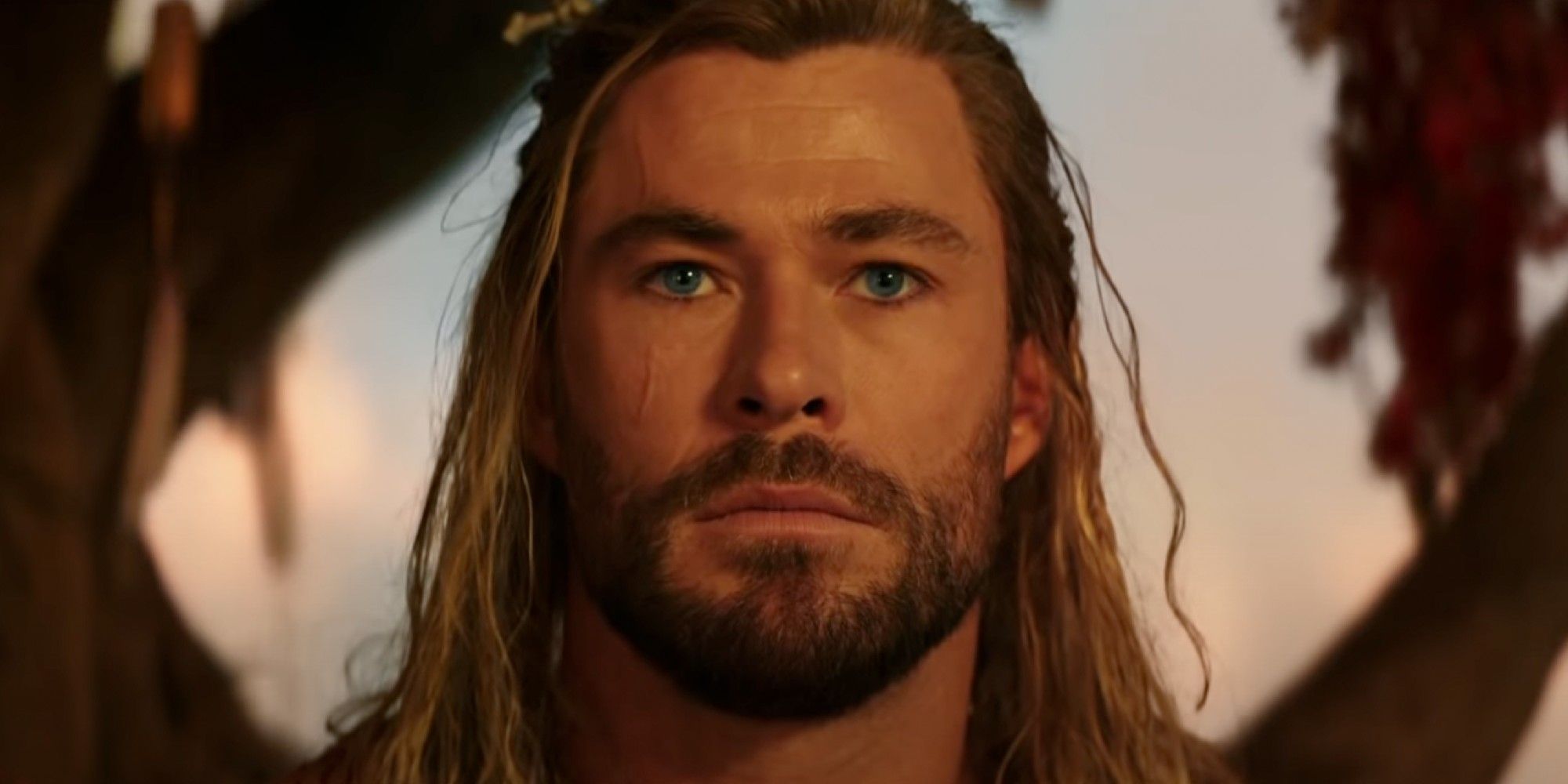Thor: Love & Thunder could transform Jane Foster into the actual Goddess of Thunder, with Thor Odinson becoming the God of Gods. Taika Waititi effectively relaunched the Thor franchise in Thor: Ragnarok, and he's returned to the MCU for the inevitable sequel. This time round, Waititi promises to be hewing a little closer to the comics; notably to Jason Aaron's iconic run, which transformed Jane Foster into the Mighty Thor.
Somehow, Mjolnir is returning, and transforming Natalie Portman's Jane Foster into a new Thor. She's not the first human who's proven worthy to wield Mjolnir—that honor goes to Steve Rogers in Avengers: Endgame—but, curiously, she is indeed the first one to be transformed when she takes hold of the hammer. Captain America gained all the power of Thor with none of the costume accessories, but Jane is getting a whole new style. It's unclear whether Thor Odinson will know the Mighty Thor's true identity when they meet, or whether he'll learn it over the course of the movie. In the comics, Jane kept that helmet on to conceal her face, with the Odinson only learning the truth after several months.
In the comics, Jane Foster was worthy to become Thor because she was dying of cancer. Every time she used Mjolnir and transformed, the hammer's magic undid the effect of the chemotherapy, meaning her heroism was actually killing her, but she believed there must always be a Thor, and considered the price worth paying. This cancer plot is confirmed to play a part in Thor: Love & Thunder, and that may create the opportunity for Jane Foster to become the literal Goddess of Thunder.
How A Human Becomes A God In Marvel Comics
In the comics, anyone who is worthy gains the power of Thor when they wield Mjolnir - and they typically (although not always) undergo a physical transformation as well. But this is always only a temporary change, and they change back either at will or when they have lost physical contact with Thor's enchanted hammer Mjolnir for a certain period of time. Comics have been inconsistent in their treatment of these transformed beings, sometimes suggesting they not only wield the power of Thor but are also functionally gods in their own right. Jane Foster, for example, was not only the Mighty Thor, she was also called the Goddess of Thunder.
But there have been cases in the comics of a human being transforming into an actual divine being; one intriguing exception was a teenager named Alexander Aaron. Alex was the son of Ares and an unidentified human woman, and he inherited godlike abilities from his father. He took the codename Phobos due to his ability to project fear into the minds of others, and became one of Nick Fury's Secret Warriors. He may have been the God of War, but Ares was proud of his son's accomplishments, and eventually took him to Olympus to meet the gods. To Ares' delight, the gods of Olympus recognized Phobos as a worthy God of Fear, but afterward, he told his son one final thing that would need to happen for him to truly become a god. "You were born a mortal boy, son of a mortal woman, and while you are not a demigod you will not achieve your full godhood until one final thing happens." He paused, forcing Alex to ask for clarification. "You must die, son, so that you may one day be reborn," Ares explained. It seems that, in the Marvel Universe, death is the final stage to becoming a god.
Jane Foster's Cancer Story Could Lead To Her Death - As In The Comics
Thor: Love & Thunder is adapting Jason Aaron's iconic run, in which Jane Foster became the Mighty Thor. This story came to a head in Thor #705, when Jane Foster died after she chose to become Thor once last time. In that story, Jane knew transforming into Thor was killing her, and her body became so frail that one last transformation would be enough to kill her. But with Asgard imperiled by a creature known as the Mangog, she chose to stand in the Realm Eternal's defense even though they had refused to accept her. Jane was only able to defeat the Mangog by attaching an unbreakable chain around the monster and attaching that chain to Mjolnir, then throwing the hammer into the sun itself. This meant the magic of Mjolnir was neutralized once and for all, and Jane became human... and died.
In thematic terms, the death of the Mighty Thor was a smart piece of writing on Jason Aaron's part. The Judeo-Christian tradition stresses the idea of God sacrificing Himself for the sake of human beings, and the Thor films and comics have frequently established a similar concept of self-sacrifice that lies at the heart of what it means to be worthy. But Jane Foster's fate inverted this, for she was a human choosing to die on behalf of the gods. Thor: Love & Thunder may not feature the Mangog, but its main villain is Gorr the God-Butcher, who is on a similar quest to slay all gods. It would be perfectly fitting, then, for the story to end in the same way. Death is a revolving door in the comics, where Odin resurrected Jane. The MCU could take a different approach, with Jane's death essentially serving as the final step in her ascension to godhood. She could truly become the new, Mighty Thor.
Thor Odinson Could Become The God Of Gods
Thor Odinson is a god already, but in truth he's no longer occupying his traditional role. Thor's character arc in the MCU to date has been pretty inconsistent, but the central theme is of a god searching for a sense of identity. Thor was initially too like his father Odin, warlike and imperial, and had he become king he would have launched Asgard on a campaign to conquer the Realms once again; and so Odin banished him to Earth, enchanting Mjolnir with the worthiness enchantment and thus initiating Thor's quest to figure out just what kind of god he should be. The trailer for Thor: Love & Thunder confirms this will continue, and it will certainly be exacerbated when he encounters a new Goddess of Thunder.
If Thor: Love & Thunder is indeed drawing on the comics, then it may build to a head with Thor Odinson discovering a new identity. In the comics, Gorr the God-Butcher ultimately constructed the God-Bomb, a weapon that would destroy every god who had ever existed. Thor stood against this terrifying force, and the gods put their faith in him. This faith briefly transformed him, granting the Odinson a power beyond anything he had seen before, as he became the "God of Gods." It would be fitting for Marvel to mirror this arc in the MCU, with Thor Odinson ascending to take on this role permanently as ruler of all the gods, while Jane Foster took his place among the Norse Pantheon. That would certainly make the themes of transformation and identity central to Thor: Love & Thunder.









